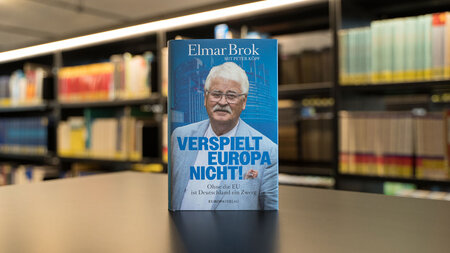Prof. Dr. Karin Leistner Helped Shape Influential International Magnetism Conference as Co-Chair of the Program Committee
The expert in future materials based on magnetoelectricity from Chemnitz University of Technology participated in the Program Committee of the 68th Annual Conference on Magnetism and Magnetic Materials 2023 in Dallas
 enlarge picture
enlarge picture The annual Conference on Magnetism and Magnetic Materials (MMM) is a prestigious international conference that addresses current developments in the field of fundamental and applied magnetism. This year, it took place from October 30 to November 3 in Dallas and was sponsored by the American Institute of Physics Publishing (AIP) and the IEEE Magnetics Society.
During the organization of MMM 2023, Prof. Dr. Karin Leistner, head of the Professorship for Electrochemical Sensors and Energy Storage at the Institute of Chemistry at Chemnitz University of Technology (TUC), served as a Co-Chair of the Program Committee. Further Co-chairs were Takahiro Moriyama (Nagoya University, Japan) and Hendrik Ohldag (Advanced Light Source, Lawrence Berkeley National Laboratories, USA): "My two colleagues and I, among other things, selected the members of the Program Committee, made the final decisions about the program, and organized the sessions," says Prof. Leistner.
The Program Committee consisted of 57 members from 17 countries, covering twelve subtopics. Prof. Dr. Georgeta Salvan from TUC also contributed to these subcommittees. Salvan researches at the Professorship of Semiconductor Physics (headed by Prof. Dr. Dietrich R.T. Zahn) at TUC, is the leader of the Magneto-Optics research group at the Research Center for Materials, Architectures and Integration of Nanomembranes (MAIN), and deputy spokesperson for the Collaborative Research Center/Transregio (CRC/TRR) "Hyperpolarization in Molecular Systems" (HYP*MOL). Along with Prof. Salvan, Dr. Markus Gößler, a research associate at the Professorship for Electrochemical Sensors and Energy Storage at TUC, also helped shape the conference in the subcommittee. The researchers decided on the submitted abstracts, voted on the nominations for invited talks, and selected reviewers for the conference publications.
After successful committee work involving Prof. Leistner, Prof. Salvan, and Dr. Gößler from TUC, MMM 2023 took place with more than 700 contributions from current research areas in the field of magnetism. The focus included antiferromagnetism, orbitronics, 2D magnets, neuromorphic computing, and magneto-ionics.
In particular, magneto-ionic materials are among the research priorities of Prof. Leistner's research group in Chemnitz. At TUC, these are being researched as a new and particularly energy-saving class of materials in the field of magnetoelectricity.
Highlights of MMM 2023 included the evening session on magneto-ionics led by Karin Leistner, an interactive seminar on machine learning in magnetism, and a workshop on ethics in publishing in the era of ChatGPT.
"Overall, the conference was very successful in addressing current topics and enabling intense discussions among leading international scientists, early-career researchers, and students at a high level," Leistner concluded.
For more information, contact Prof. Dr. Karin Leistner, Professorship for Electrochemical Sensors and Energy Storage, tel. +49 371 531-36463, e-mail karin.leistner@chemie.tu-chemnitz.de.
(Author: Matthias Fejes / Translation: Brent Benofsky)
Matthias Fejes
07.11.2023





